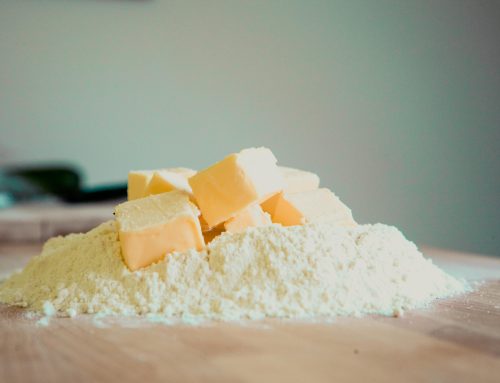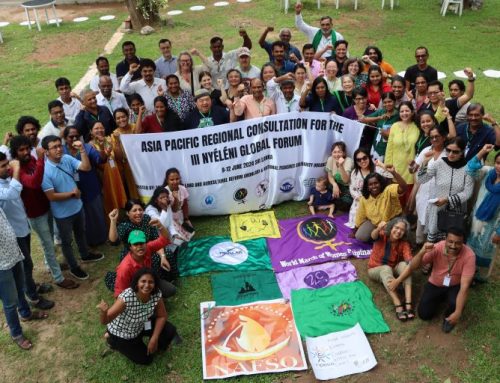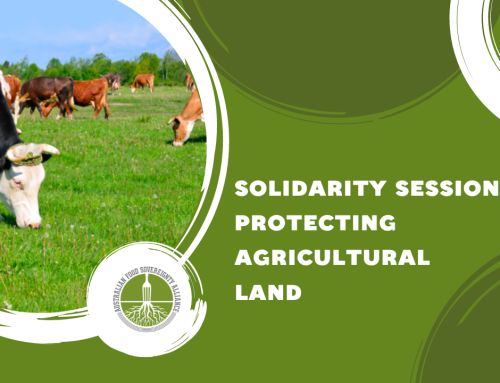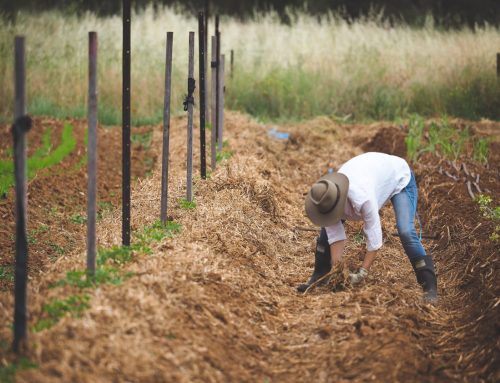Story by Russ Grayson, September 2014
A Cold War initiative might offer an alternative to proposed draconian, ‘ag-gag’ laws being pushed by state governments and farmer organisations in South Australia and Tasmania.
The initiative was an innovative idea for an era, one that could have defused misunderstanding and hostility.
Let’s get back to that shortly.
THE PROBLEM: all lose except bellicose politicians
South Australia’s is copycatting Tasmania’s proposed legislation outlawing the secret videoing of farm conditions in which animals are kept, a practice adopted by the animal rights lobby to reveal alleged cruelty.
Pushed by industry bodies like Australian Pork Limited, by the Tasmanian Farmers and Graziers Association and by Federal Agriculture Minister Barnaby Joyce who wants to see the spread of such legislation, farmers are understandably unhappy with animal rights intruders entering their farm to video the conditions in which they keep their animals. Recently, Animal Liberation has used an AEV — an unmanned aerial vehicle — a camera drone — to carry our surviellence of free range egg producers on Hunter Valley and Central Coast NSW farms. They are not entering farm property to do this because farmers do not own the air space above their farms.
Animal rights lobbyists say that video evidence is crucial to ensuring Australians have cruelty-free animal products. The RSPCA agrees. In an article by Peter McCutcheon on abc.net.au on August 17 this year, the organisation’s NSW chief executive, Steve Coleman, told ABC Landline the laws could lead to the perception that farmers have something to hide. He came out in favour of farm industry transparency.
Australia’s food buyers can only lose if legislation is introduced because farmers keeping their animals in cruel condition will better be able to cover up their bad farming practices. That would disadvantage the majority who keep animals responsibly.
AN IDEA: look after your customer — stop hiding behind government
Let’s be clear: Australia’s food buyers have a right to know how their food is produced, what is in it and how the farm animals whose products they eat are kept.
That animal rights people resort to trespass to gain evidence of cruel conditions is unfortunate because it is an intrusion into farmer livelihoods. However, while it might disadvantage guilty farmers it benefits the industry because, by revealing the guilty, it also reveals the innocent and ethical, and farmers interests lie in protecting their markets by weeding out the unethical. But, is there a better way to ensure this than by animals rights advocates sneaking onto farms and surreptitiously videoing conditions? That’s what I get to later in this article.
The RSPCA’s Steve Coleman told the ABC that the divide between city dwellers and those that live in the country is getting wider. A lack of transparency about farming operations and how animals are kept can only widen this gap further as city people, who farmers rely upon to buy what they produce and who can just as easily choose to buy imported product if they think farmers — as Steve Coleman suggests could happen — have something to hide, come to distrust farmers and their products. That’s the risk with this legislation… as Coleman says, people cold well ask just what is it that farmers do that they need government legislation to hide behind?
A dilemma for food advocates
The proposed legislation presents something of a dilemma to advocates supporting Australian farmers producing for the domestic market. They often talk of ideas like ‘food democracy’ to support a food system that is fair to all and that is open to smaller producers. I can’t help but wonder, though, whether this concept of food democracy, would put them at odds with farmers who support legislation promising disproportionate penalties for revealing conditions on farms.
The risk for fair food advocacies comes from the reality that it is urban people who want to be sure their food is cruelty-free, the same urban people who they encourage to buy Australian-farmer-first. Those people won’t be reassured by Australian farmers supporting legislation with disproportionate penalties because many of them would likely perceive that as being unfair to their own best interests. Were anything more to come from the proposed legislation, how much would it take for those food buyers to believe what Steve Coleman describes as farmers having “something to hide” about their farm operations and to switch to imported products that they had greater confidence in?
Here’s another question: Should local and fair food advocates support farmers who don’t like the idea of transparency in farming and who would deny people knowledge of how their food is produced? The legislation could see local food advocates start to withdraw their support for Australian farmers producing for the domestic market if they see them as anti-democratic and favouring legislation with disporportionate penalties.
We can see that the only winners in this legislation will be bellicose politicians, farm industry lobbies and farmers engaging in animal cruelty. There is a solution, however, and to find that we travel back to those dim and dangerous years of the Cold War.
A SOLUTION: defusing the Cold War — open farms
The Cold War proposal that could be the model for a solution to the draconian farming legislation proposed by the more extreme state governments and belicose politicians was called ‘Open Skies’. Vetoed by the Soviet Union (which probably means it was a good idea), Open Skies was proposed by US President Dwight Eisenhow at the 1955 Geneva Summit of nuclear powers. His idea proposed that the USA and the Soviet Union exchange maps locating military installations in their respective nations and that both nations be allowed to conduct aerial surveillance of the installations to assure compliance with arms control agreements.
In other words, Eisenhow’s was a proposal for radical transparency. Applied as a model to the issue of cruelty to farm animals, Open Skies becomes ‘Open Farms’. It would introduce farm inspection by a team consisting of an animal rights organisation member, a farmer organisation member and the RSPCA. The idea could be seen as enhancing the existing RSPCA Approved Farming Scheme (http://www.shophumane.org.au/#sthash.UNPNzPJO.dpuf). A government representative or politician would contribute little or nothing and would likely just complicate things, and is therefore best ommitted.
The role of this team would be to inspect farms for evidence of cruelty that could then be prosecuted, or, preferably, the farmer assisted in improving their treatment of animals. Being made up of people from the different interests around farm animals would give the team credibility. Lack of a politician or public servant would avoid allegations of political and bureaucratic bias. Inspecting and publicly reporting on the farms they visit would make farming transparent.
Open Farms would achieve a number of benefits:
- it would ensure Australia’s animal product buyers that their food is cruelty-free
- it would benefit farmers with a cruelty-free product
- it would do away with the need for draconian legislation
- it would boost public confidence in Australian farming.
Who Open Farms would not benefit: politicians who grandstand on this issue. With their political party’s ideological baggage, they are no loss because they contribute nothing of value to developing creative solutions and they polarise issues for their own gain.
If the market demands cruelty-free products then any market-savvy farmer — and farmer organisation — will see a market opportunity, invite inspection of their farms with a scheme like that proposed and brand their product as cruelty-free. If they can’t do this, and prefer to hide behind the protectionism of draconian legislation, then you really have to ask whether they have the market acumen to continue as producers.
Open Farms need not await the tardy response of politicians or government. We need neither. Rather than backing each other into corners, were the animal rights organisations and farmer organisations to get together and talk and cooperate in introducing Open Farms or something like it, then they would position themselves less as leaders of sectional interests and more as leaders of the public interest.
Note: The author is not a member of, nor has any connections to, nor otherwise supports the animal rights lobby.





